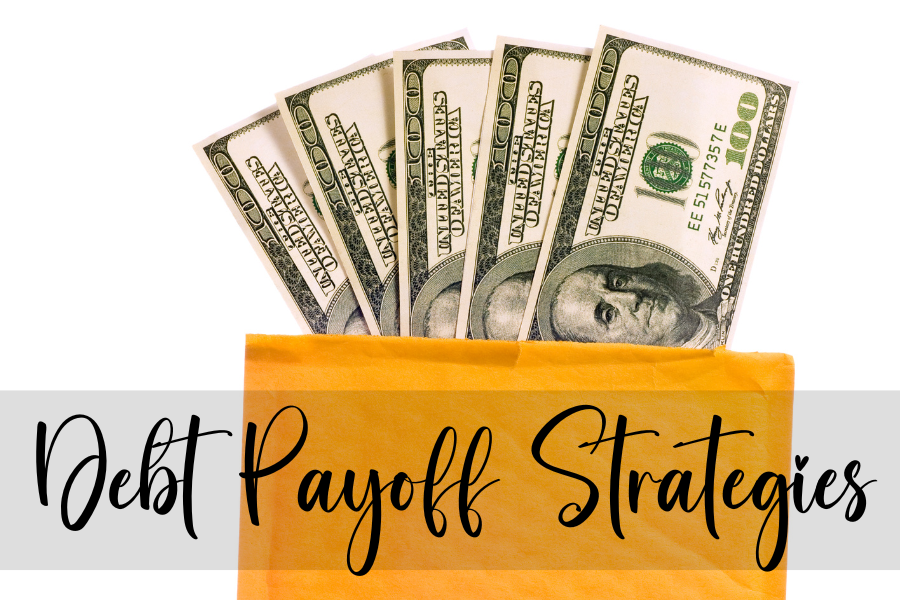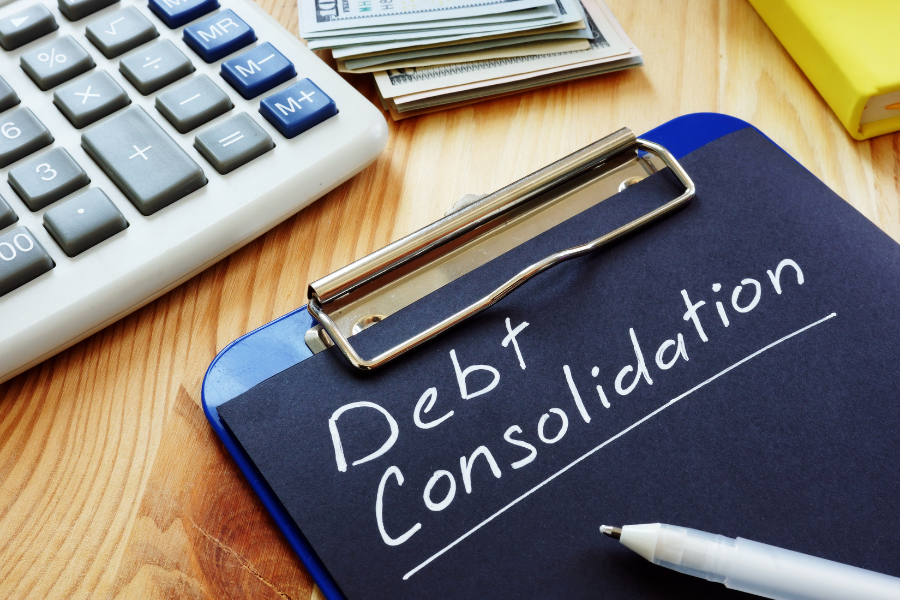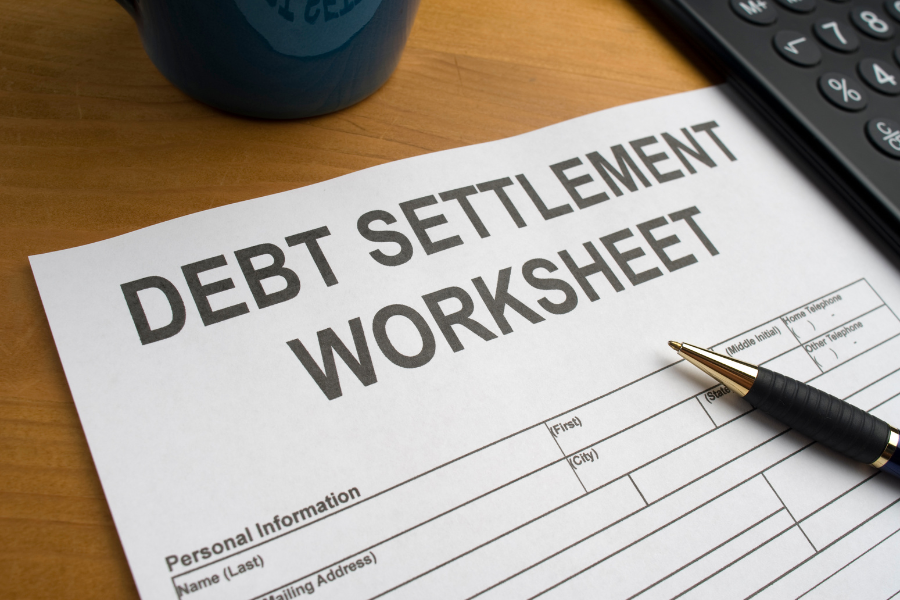This article may contain affiliate links. See our disclaimer for more information.

Welcome to our comprehensive guide on the best debt payoff strategies. If you’re burdened by debt and seeking effective solutions to regain control of your finances, you’ve come to the right place. In this article, we will explore the top 7 debt payoff strategies that can help you efficiently tackle your financial burdens. These proven methods will provide you with actionable steps to master your debt and achieve financial freedom.
Understanding Your Debts and Creating a Budget

Before you can effectively tackle your debts and create a solid plan for debt payoff, it’s crucial to have a clear understanding of your financial situation. This involves assessing your debts and creating a budget that aligns with your goals. Here’s a step-by-step guide to help you get started:
- Assess Your Debts: Begin by gathering all the necessary information about your debts. Make a list of each debt, including the outstanding balance, interest rate, minimum monthly payment, and any other relevant details. This will give you a comprehensive overview of your debts.
- Identify Priorities: Once you have a list of your debts, it’s important to prioritize them. Determine which debts have the highest interest rates or pose the greatest financial risk. These are the debts that should be your top priority when it comes to repayment.
- Create a Budget: Next, it’s time to create a budget that takes into account your income, expenses, and debt repayment goals. Start by calculating your monthly income and deducting your essential expenses, such as housing, transportation, and groceries. Allocate a portion of your remaining income towards debt repayment.
- Trim Unnecessary Expenses: In order to free up more money for debt payoff, consider cutting back on non-essential expenses. This could include dining out, entertainment subscriptions, or impulse purchases. Every dollar saved can contribute to faster debt repayment.
- Emergency Fund: As you work towards paying off your debts, it’s important to build an emergency fund. Set aside a small portion of your budget each month to gradually accumulate savings. This will provide a safety net in case unexpected expenses arise.
By understanding your debts and creating a budget that reflects your financial reality, you’ll be better equipped to develop an effective debt payoff strategy. Stay committed to your budget and regularly review your progress to ensure you’re on track towards achieving your financial goals.
The Debt Snowball Method

The debt snowball method is a highly effective strategy for paying off debt. It focuses on building momentum and motivation by targeting the smallest debts first. Here’s how it works:
- List out all your debts, including credit cards, loans, and any other outstanding balances.
- Organize the debts from smallest to largest based on the outstanding balances.
- Make minimum payments on all debts except for the smallest one.
- Allocate any additional funds you have towards paying off the smallest debt.
- Once the smallest debt is paid off, move on to the next smallest debt and repeat the process.
- Continue this cycle until all your debts are paid off.
The debt snowball method offers several benefits:
- Motivation: By tackling the smallest debts first, you experience a sense of accomplishment, which motivates you to keep going.
- Debt Elimination: As you pay off each debt, you free up funds that can be redirected towards larger debts, accelerating the overall payoff process.
- Simplicity: The debt snowball method provides a clear and straightforward plan of action, making it easy to follow and implement.
Implementing the debt snowball method effectively requires discipline and consistency. By sticking to the plan and making regular payments towards your debts, you will steadily progress towards a debt-free future.
The Debt Avalanche Method

The debt avalanche method is a highly effective strategy for paying off debt. By utilizing this method, you can accelerate your journey towards becoming debt-free. Here’s how it works:
1. Assess your debts: Start by making a list of all your debts, including the outstanding balances, interest rates, and minimum monthly payments.
2. Organize by interest rate: Arrange your debts in descending order based on their interest rates. The debt with the highest interest rate should be at the top of the list.
3. Pay off high-interest debts first: Allocate any extra funds you have towards the debt with the highest interest rate while continuing to make minimum payments on other debts. This approach helps you save money on accumulated interest over time.
The debt avalanche method offers several advantages:
- Save money: By prioritizing high-interest debts, you reduce the overall interest you’ll pay, ultimately saving you money in the long run.
- Debt reduction speed: The debt avalanche method focuses on paying off debts with high interest, allowing for a quicker overall debt payoff.
- Motivation: As you start eliminating high-interest debts, you’ll experience a sense of accomplishment and motivation to continue with your debt repayment plan.
Implementing the debt avalanche method requires commitment and discipline, but the rewards are well worth it. Stick to your plan and keep making progress towards becoming debt-free.
Debt Consolidation

Dealing with multiple debts can be overwhelming and confusing, but debt consolidation offers a solution to simplify the repayment process. By combining your debts into a single loan, debt consolidation allows you to manage your payments more efficiently and potentially reduce your overall interest rates.
One of the key benefits of debt consolidation is the convenience of making a single monthly payment instead of juggling multiple due dates. This can help you stay organized and avoid missing any payments, which could negatively impact your credit score.
There are different consolidation options available, each with its own advantages and considerations. Here are a few common methods:
- Personal Loans: Taking out a personal loan to pay off your debts can be an effective strategy. This allows you to consolidate your debts into a single loan with a fixed interest rate and predictable monthly payments.
- Balance Transfer: If you have credit card debts, transferring them to a low- or zero-interest rate credit card can save you money on interest payments. However, be mindful of any balance transfer fees and the duration of the promotional period.
- Home Equity Loan: If you own a home, you may consider using a home equity loan to consolidate debts. This involves borrowing against the equity in your home and using the funds to pay off your debts. Keep in mind that this option puts your home at risk if you fail to make the payments.
Before pursuing debt consolidation, it’s important to carefully evaluate if it’s the right strategy for you. Consider the interest rates, fees, and terms associated with the consolidation option you choose. Additionally, assess your financial discipline and commitment to making consistent payments to ensure the success of your consolidation plan.
Remember: Debt consolidation is not a magic solution that erases your debts instantly. It’s a tool that can simplify your repayment journey and potentially save you money in the long run. To fully benefit from debt consolidation, combine it with responsible financial habits and a disciplined budget that ensures you don’t accumulate new debts.
Credit Counseling and Debt Management Plans

If you’re struggling to pay off your debts, credit counseling and debt management plans can be valuable resources to help you find a path to financial freedom. These services provide support and guidance to individuals facing overwhelming debt and can offer effective solutions to manage and pay off your obligations.
When it comes to credit counseling, this service provides expert advice and education on managing your finances and debt. A credit counselor will assess your financial situation, help you create a budget, and offer personalized recommendations for debt repayment strategies. They can provide insights into your spending habits, suggest ways to reduce expenses, and guide you towards a more sustainable financial future.
Debt management plans are another tool offered by credit counseling agencies. These plans involve working with a credit counselor to negotiate with your creditors on your behalf. The aim is to consolidate your debts into a single monthly payment that is affordable for you. During the negotiation process, the credit counselor will also seek to reduce interest rates and potentially waive late fees, helping you save money over time.
One of the advantages of credit counseling and debt management plans is that they can help you regain control over your financial situation. Working with a credit counselor will provide you with the knowledge and tools to make informed decisions about your debts. You’ll learn how to develop a realistic budget, prioritize your payments, and establish healthy financial habits for the long term.
Additionally, credit counseling and debt management plans can offer relief from collection calls and stress associated with unpaid bills. By consolidating your debts and negotiating more favorable repayment terms, you’ll have a clear roadmap to follow towards becoming debt-free.
If you’re considering credit counseling and debt management plans, it’s important to choose a reputable organization. Look for agencies affiliated with nationally recognized associations such as the National Foundation for Credit Counseling (NFCC) or the Financial Counseling Association of America (FCAA).
Benefits of Credit Counseling and Debt Management Plans:
- Expert advice and guidance from credit counselors
- Assistance in creating a realistic budget
- Education on managing finances and debt
- Consolidation of debts into a single manageable payment
- Reduction in interest rates and potential elimination of late fees
- Relief from collection calls and stress
- Opportunity to learn healthy financial habits for the future
Overall, credit counseling and debt management plans can be effective tools in helping individuals overcome debt and work towards financial stability. By seeking professional guidance, you can take proactive steps to regain control of your finances and pave the way to a debt-free future.
Debt Settlement and Negotiation

If you find yourself overwhelmed by your debts, debt settlement and negotiation can be viable options to consider. These strategies can help you regain control of your financial situation and make progress towards paying off your debts.
Debt settlement involves negotiating with your creditors to settle your debts for less than the total amount owed. This can provide a significant reduction in your overall debt burden and potentially save you money. However, it’s important to be aware of the potential implications before pursuing debt settlement.
Before entering into debt settlement negotiations, it’s crucial to assess your financial situation and determine if it’s the right option for you. Consider consulting a financial advisor or credit counselor to understand the potential impact on your credit score, tax liability, and legal consequences.
Negotiation Techniques:
- Start by gathering all the necessary information about your debts, including outstanding balances, interest rates, and payment terms.
- Establish a realistic repayment plan that you can propose to your creditors during negotiations.
- Consider working with a professional debt settlement company or an attorney experienced in debt negotiation to help you navigate the process.
- Communicate with your creditors to explain your financial hardship and express your willingness to resolve your debts through negotiation.
- Be prepared to provide evidence of your financial hardship, such as income and expense statements, to support your case.
Remember, negotiations may involve multiple discussions and offers. It’s essential to be patient, persistent, and willing to compromise to reach a mutually beneficial agreement with your creditors.
While debt settlement can provide relief from overwhelming debts, it’s important to understand that it may have a negative impact on your credit score and financial reputation. Make sure to weigh the pros and cons before deciding to pursue debt settlement.
By exploring debt settlement and negotiation as potential strategies, you can take proactive steps towards paying off your debts and achieving financial stability.
Increasing Income and Reducing Expenses

If you’re looking to accelerate your debt payoff journey, increasing your income and reducing expenses are two essential steps to consider. By implementing practical strategies, you can boost your earnings and free up more money to put towards paying off your debts.
Increase Income
One effective way to increase your income is by exploring additional sources of revenue. Consider the following options:
- Take on a side hustle: Identify a skill or hobby that you enjoy and find ways to monetize it. Whether it’s freelancing, tutoring, or selling handmade crafts, a side hustle can provide you with extra income to allocate towards your debt.
- Request a raise or promotion: If you’ve been excelling at your job, don’t hesitate to ask for a raise or seek opportunities for advancement within your company. Highlight your accomplishments and the value you bring to the organization.
- Explore flexible work options: Look for opportunities to work remotely or take on flexible hours. This flexibility can allow you to pursue other income-generating activities while maintaining a steady job.
Reduce Expenses
Reducing your expenses is another crucial aspect of accelerating your debt payoff. Consider the following tips:
- Create a budget: Start by tracking your expenses and identifying areas where you can cut back. Allocate your income towards essentials, such as housing and groceries, while minimizing discretionary spending.
- Eliminate unnecessary subscriptions: Review your monthly subscriptions and cancel services that you no longer need or use. This can include streaming platforms, gym memberships, or subscription boxes.
- Meal plan and cook at home: Dining out can quickly add up. By planning your meals ahead, grocery shopping strategically, and cooking at home, you can save a significant amount of money each month.
- Shop smartly: Look for ways to save on your regular purchases. Compare prices, use coupons or discounts, and consider buying generic brands instead of name brands.
By increasing your income and reducing expenses, you’ll have more money available to pay off your debts. Remember, every dollar counts towards your financial freedom.
Conclusion

In conclusion, implementing these 7 best debt payoff strategies is crucial for taking control of your finances and working towards a debt-free future. By understanding your debts, creating a budget, and utilizing methods like the debt snowball or debt avalanche, you can make significant progress in paying off your debt.
Debt consolidation, credit counseling, and debt settlement are alternative options that may be suitable for your specific needs. However, it’s important to carefully consider the pros and cons of each method before proceeding. Additionally, finding ways to increase your income and reduce expenses can accelerate your debt payoff journey.
Remember, consistency and perseverance are key. Stay committed to your selected strategies, and you’ll soon celebrate your progress towards financial freedom. By taking proactive steps to address your debts and following a well-defined plan, you can overcome the burden of debt and pave the way for a brighter, more secure financial future.





